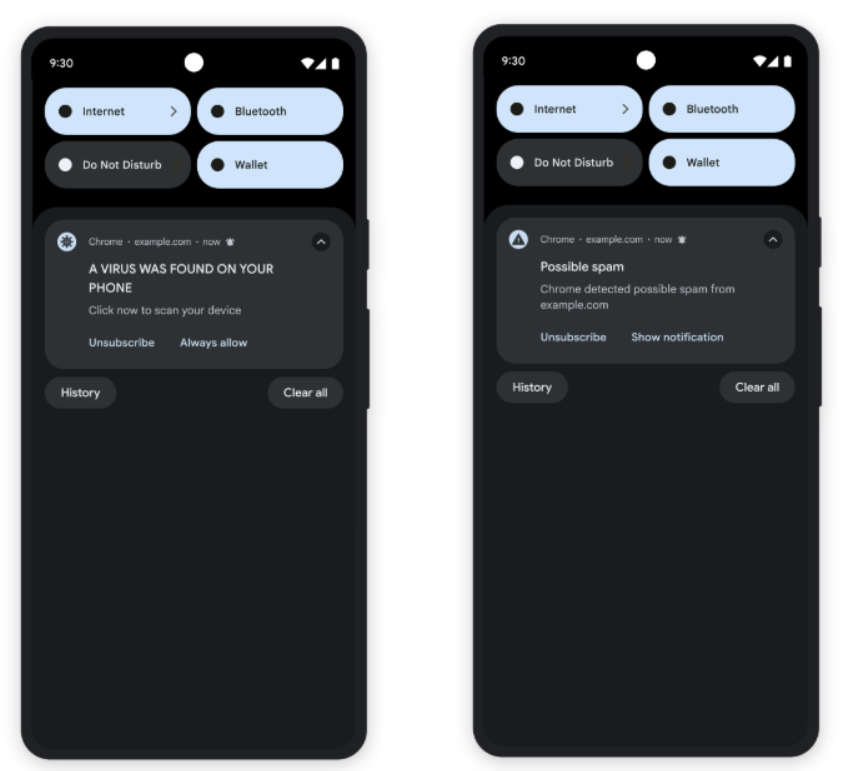Chrome is rolling out a defense system that catches scammy notifications before they can do harm. The browser's latest update for Android devices now uses on-device machine learning to identify and flag suspicious notifications that might be trying to trick you into downloading sketchy software, or handing over personal information.
Google confirmed Thursday that its new notification warning system is active, giving Android users an extra layer of security against an increasingly common form of mobile scam.
"When a notification is flagged by Chrome, you’ll see the name of the site sending the notification, a message warning that the contents of the notification are potentially deceptive or spammy, and the option to either unsubscribe from the site or see the flagged content," the Chromium team said in a blog post announcing the feature.

Notification-based scams have become the digital equivalent of those annoying pop-up windows that plagued earlier versions of the internet—except now, they're harder to spot. These new pests can even follow you even after you've left a website, which is why AI on your device works better than server-based AI, per Google’s assessment.
“Leveraging LLMs on-device allows us to see threats when users see them. We’ve found that the average malicious site exists for less than 10 minutes, so on-device protection allows us to detect and block attacks that haven't been crawled before.” Google said in a separate blog post. “The on-device approach also empowers us to see threats the way users see them.”
Rather than sending your notification data to Google's servers for analysis, Chrome leverages Gemini Nano’s multimodal capabilities to differentiate good from bad notifications. The machine learning model examines the text in each notification—including its title, body content, and any action buttons—then makes a determination about whether it looks fishy.

Image> Google Security Blog
This also means that Google does not have access to your notifications, because they remain encrypted and never leave your phone. Google claims it took extra precautions with the training data, using synthetic information generated by its Gemini large language model instead of actual user notifications. The company then validated this training data against real notifications that its security team gathered and had human experts classify.
The system adds to Chrome's growing arsenal against notification abuse. The browser already revokes notification permissions from sites that Google Safe Browsing identifies as abusive, and offers one-tap unsubscribe for any notification on Android, whether it's been flagged or not.
For now, the feature is Android-only since that's where most notification spam happens, but Google hinted at possible expansion: "We will evaluate expanding to other platforms in the future," the company noted.
The best part about this new protection is that it's completely automatic, unlike other alternatives in which users typically have to deal with filters, exceptions, and other configurations, updating them as scams get more sophisticated. If Chrome spots something suspicious, then you'll know about it before the scammers can make their move.

Some Programs require complex filters and configurations
With notification fraud growing more sophisticated, this machine learning approach offers a smarter way to spot the tricks that static blocklists might miss. Hopefully Apple will follow suit.
免责声明:本文章仅代表作者个人观点,不代表本平台的立场和观点。本文章仅供信息分享,不构成对任何人的任何投资建议。用户与作者之间的任何争议,与本平台无关。如网页中刊载的文章或图片涉及侵权,请提供相关的权利证明和身份证明发送邮件到support@aicoin.com,本平台相关工作人员将会进行核查。




